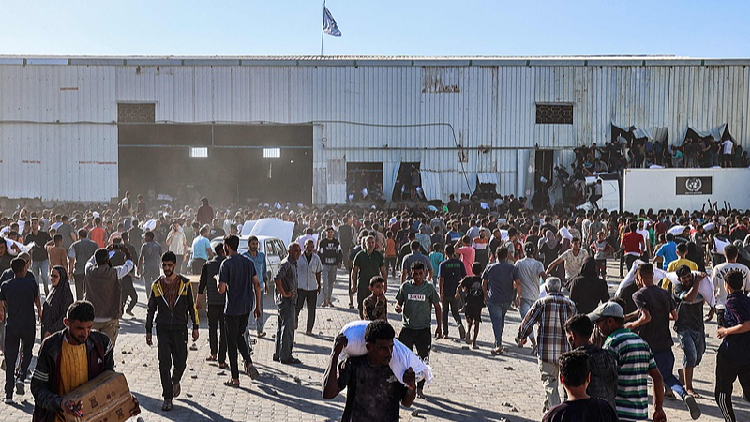Hamas Announces Reached Agreement with U.S. on Gaza Ceasefire Framework
Hamas announces agreement with U.S. envoy Steve Witkoff on framework for Gaza ceasefire.

Negotiations toward a potential ceasefire in the Gaza Strip appear to have made some progress, as Hamas announced on Wednesday that it has reached an agreement with the United States Special Envoy to the Middle East, Steve Witkoff, on a general framework for ending hostilities. The proposed arrangement reportedly involves the release of 10 Israeli hostages and several bodies, in exchange for a specified number of Palestinian prisoners, under the supervision of international mediators.
Hamas stated that it is now awaiting a final response to this agreement and emphasized its commitment to seeking an end to what it called the "brutal war" on Gaza. According to the group's official statement, the framework aims to establish a permanent ceasefire, ensure a complete withdrawal of Israeli forces from the Gaza Strip, allow for the unimpeded flow of humanitarian aid, and install a professional committee to oversee the territory’s affairs immediately following the announcement of the deal.
Despite these claims, ambiguity remains. While a Hamas official indicated that the group had accepted the ceasefire proposal offered by the U.S. envoy earlier this week, Witkoff himself denied that any such acceptance had been conveyed, fueling confusion over the actual status of the negotiations. Meanwhile, Israeli officials have yet to make an official statement regarding the proposal, with local media quoting unnamed sources insisting that Israel rejects the framework as currently outlined.
Experts suggest that the core obstacle remains Israel’s conditions for ending military operations in Gaza. Abdel Mohdy Motawe, executive director of the Cairo-based Middle East Forum for Strategic Studies and National Security, explained that Israeli Prime Minister Benjamin Netanyahu’s government insists on three primary requirements: the removal of Hamas from governance, the disarmament of the Gaza Strip, and the exile of Hamas leaders. These conditions, widely supported within Israel and backed by the US administration, make it unlikely that Netanyahu will halt the war in the absence of significant concessions.
Mokhtar Ghobashy, secretary-general of the Al-Farabi Center for Studies, added that the limited international pressure has emboldened Israel to continue its strategy, arguing that current U.S. measures are insufficient to force a policy change. He warned that Israel is "exploiting the time frame and the regional context to pursue a dangerous, systematic approach for displacing Palestinians," reflecting the deeply entrenched positions on both sides.
While diplomatic efforts continue, conditions on the ground in Gaza remain dire. Following more than eleven weeks of strict blockade, two food distribution compounds operated by private U.S. companies began operations in southern Gaza this week. The move came after a brief respite that allowed limited humanitarian supplies to enter, amid stark warnings from United Nations officials about the growing risk of famine.
Yet even aid distribution has been mired in chaos. Thousands of Palestinians flocked to a newly established humanitarian center in Rafah, operated by the Gaza Humanitarian Foundation, a U.S.-based organization. The overwhelming demand led to disorder, with crowds overrunning the facility and breaking through barbed wire barriers in a desperate bid to secure food.
UN spokesperson Jens Laerke clarified at a press briefing that the United Nations was not involved in the GHF's operations, describing the new aid initiative as inadequate in addressing the scope of need within Gaza. He stressed that what is truly required is the full reopening of all border crossings into the enclave to restore consistent, large-scale humanitarian access.
As negotiations over a lasting ceasefire continue, the humanitarian crisis in Gaza deepens, with civilians bearing the brunt of both the conflict and the prolonged blockade. The coming days are expected to be crucial in determining whether progress can be made toward both a political resolution and the alleviation of immense suffering on the ground.




